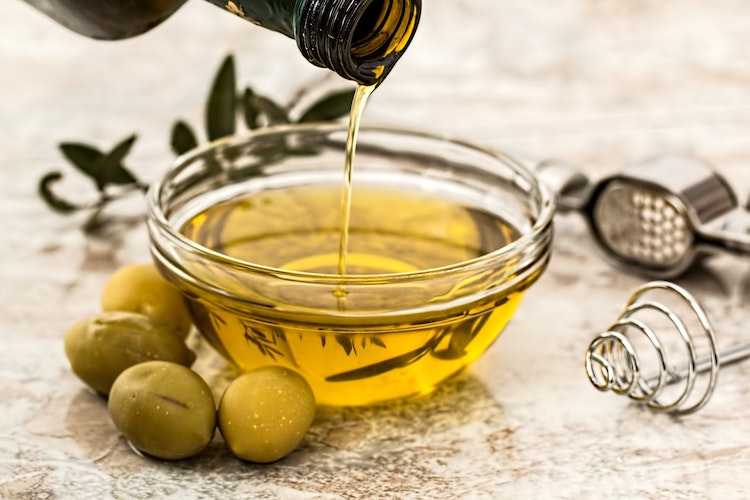Sardinian Extra Virgin Olive Oil 0 Comments

The Extra Virgin Olive Oil is excellent in Sardinia perhaps because Sardinians knew the fruits of olive and wild olive trees since the Neolithic age and oil and olives have been part of their diet for centuries. Legend tells that olives and oil production would have arrived on the island with Aristeo, son of Apollo and Cyrene believed to be the founder of the city of Cagliari and who also introduced to Sardinia the art of making cheese and the maintenance of bee colonies to collect their honey and wax. On the other hand, archaeology tells us, through Giovanni Lilliu, a scholar of 'Su Nuraxi': Nuragic Village of Barumini where he has identified a small room used for oil production.
Extra virgin olive oil, representative of the Mediterranean diet, is recommended by dieticians, nutritionists and sports instructors because it protects the cardiovascular and gastrointestinal system and helps against cellular ageing.
The history of the cultivation of olive trees and grafting on wild olive trees is interesting, documented since the Middle Ages in monasteries, where olives and oil were also used as healing ointments and in sacred rites. The scholar Giovanni Francesco Fara, historian of the sixteenth century, in the "Chorographia Sardiniae", wrote that Bosa, Logudoro and Alghero were rich in olive trees, and in the seventeenth century, the Spaniards brought professional grafters transforming these cultivations commercially more productive.
Between the end of the eighteenth century and the nineteenth century in the Savoy time, King Vittorio Emanuele promulgated an ordinance in 1806 granting noble titles to those who had planted at least four thousand olive trees on the island. Thanks to the eight thousand plants located on the Villa d’Orri estate, near Cagliari, Don Giovanni Manca di Villahermosa was appointed Marquis of Nissa. In the mid-twentieth century, the agrarian reform and new investments, managed by Etfas (Sardinia Land and Agricultural Transformation Body) increased the cultivation of olive trees, introducing Tuscan and Sicilian varieties as well.
Currently, olive growing is the island's excellence: since 2007 the extra virgin olive oil of Sardinia has been recognized by the European Union as a DOP brand. The right balance between scents and savours is one of the principles distinguishing a good extra virgin olive oil compared to a less valid product.
Today the Accademia Olearia inserts the Sardinian oil among the '100 Italian excellences' of Forbes 2022. It is the company of the Fois Family of Alghero that has been chosen among the Made in Italy oil‘s excellences, reconfirming their leadership in the oil sector at the national and international level following the "Double Gold Medal" in the Biol Novello 2021 competition for the best organic extra virgin olive oil in the world, the 'Top Italian Food' of Gambero Rosso and the first place among Sardinian oils in the prestigious Evoo World Ranking.
The EVOO World Ranking (Extra Virgin Olive Oils) is a classification rewarding EVOO (the Identity Card of Extra Virgin Olive Oil), is a project to create maps of the Italian production areas of extra virgin olive oil, in order to trace the geographical origin of each single EVO.
Sardinian Extra Virgin Olive Oil is pure poetry, as Francesca Mulas says: "... the ripening of the olives on fronds laden with leaves shading the quiet cattle and men sheltered from the heat. Small fruits whose shiny skin reflects the sun's rays and attracts butterflies in love. The wind caresses its features, while at times strengthening them. The love of harvesting. The milling transforms them into fragrant gold. The processing, the time, the waiting. And eventually its arrival on the table: Sardinian oil."
--
Written by Daniela Toti
Teilen Sie uns Ihre Meinung mit!